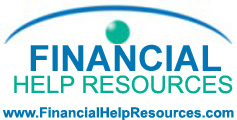Greene County DSS Catskill
Website: http://www.greenegovernment.com/department/socialserv/
(518)719-3700
Financial Help Provided: Temporary Assistance, Food Stamps, Children Services, Medical Assistance, Welfare Management
Full Description:
Services provided: Temporary Assistance, Food Stamps, Children Services, Medical Assistance, Welfare Management.
Temporary Assistance (TA) formerly called Public Assistance (PA ) provides help to needy people in the form of cash grants to eligible clients. The cash grants will help clients to pay for:
1. Food and Clothing
2. Rent and mortgage
3. Fuel and utilities
4. Special needs at pregnancy
5. Emergency - repairs/evictions
In New York State there are two major cash assistance programs.
1. Family Assistance (FA) - Provides cash assistance to eligible needy families that include a minor child living with a parent/parents or a caretaker relative. It is operated under federal Temporary Assistance for Needy Families (TANF) guidelines. Eligible adults are limited to receiving benefits for a total of 60 months in their lifetime. The months are accumulative not just consecutive. Count down began December 1996.
2. Safety Net Assistance (SNA) - This is the state assistance program for some applicants who are not eligible for Family Assistance Program. SNA is for single adults, childless couples, families of persons abusing drugs/alcohol, persons who have exceeded the 60 month limit on assistance and qualified aliens. SNA in cash is for a maximum of two years in a lifetime. After that, if you are eligible SNA will be provided in non-cash form, such as a two party check or a voucher.
The cash assistance consists of a basic allowance, energy allowance, supplemental, rent and fuel allowance if fuel is not included in the rent. All recipients must apply separately for Food Stamps and Medicaid although most would be eligible.
Important Information For Both Programs:
- Applicants must be financially eligible and not exceed the resource level.
- Clients who are employed must report all income.
- Clients must recertify during an interview scheduled on a periodic basis.
- All employment requirements must be met or sanctions can be imposed.
- Screening for alcohol/substance abuse, domestic violence, and child support information will be held initially and periodically thereafter.
- If the temporary assistance case closes due to employment a client may still be eligible for transitional Day Care, Food Stamps, Medicaid services for up to 6 months.
Other Public Assistance Programs
Day Care Services - Day Care is a service for children whose parents need help in providing care and supervision while they are ill, employed, enrolled in a job training or rehabilitation program, actively seeking employment or attending school. The service is provided to children from six weeks old through their thirteenth birthday.
Day Care may be provided to families who meet the income guidelines in one of three categories:
1. Temporary Assistance - receiving or eligible to receive temporary assistance.
2. Transitional Child Care - families who have received Temporary Assistance for three months of the past six months. A sliding scale co-payment is required.
3. Low income - families who do not fall into the first two categories but whose income is sufficiently low enough to meet an established income guidelines. Co-payment is based on income and family size.
Day Care may also be provided as part of a plan of service to provide preventive or protective services for a child without regard to income.
All Day Care facilities are licensed by New York State Office of Children and Family Services. Any person who cares for more than two children in their own home is required by law to be certified. Informal Day Care homes are not licensed but are limited to no more than two children plus the providers own children. Payment is up to established market rates.
Emergency Assistance to Families (EAF) - this program is intended to meet temporary emergency situations. It may cover persons already receiving ongoing assistance under certain conditions as well as non-recipients. To be eligible for EAF, the same criteria must be met as for Temporary Assistance and all other resources must be explored. EAF may only be authorized for one thirty day period in any twelve consecutive months. EAF may not be used to supplement a public assistance grant.
Emergency Aid to Adults (EAA) - intended to assist aged, blind and disabled SSI recipients. EAA can cover the following emergencies: catastrophic loss of clothing, furniture, food, shelter or fuel, stolen/lost checks, mismanaged cash, moving expenses, maintenance of a home while a person is temporarily hospitalized to prevent an eviction or a utility shutoff.
Another area of emergency aid is the payment arrangement payback. Where an able bodied single adult or childless couple not eligible for an EAF but in need of emergency assistance could, if eligible, sign a payment arrangement agreeing to pay back the agency's money given to cover the emergency.
Home Energy Assistance Program (HEAP) - intended to assist with cost for heat and energy related expenses (including repairs and maintenance of heating equipment). Eligibility is based on income received by the household during the month in which they apply. Household size and energy type define the specific amount of the grant. HEAP regulations provide for regular and emergency benefits. Provisions vary each year.
Contact FinancialHelpResources.com
Do you have more to add or need listing updated? Let us know.
